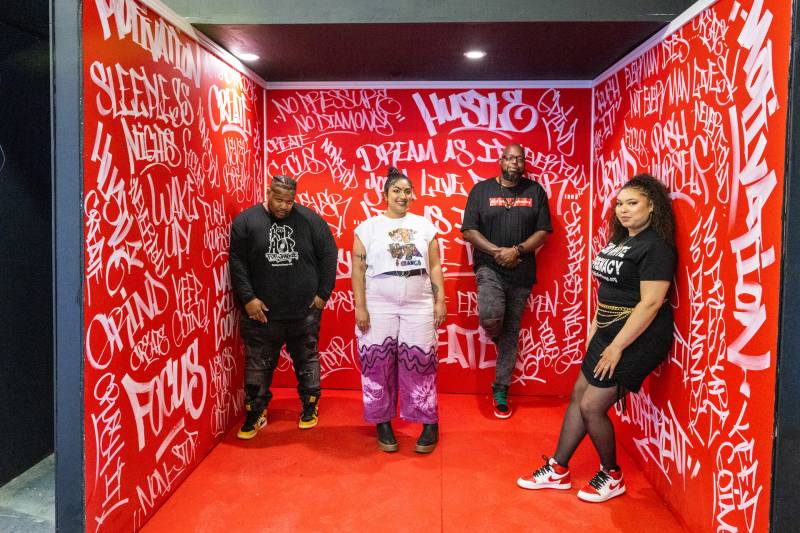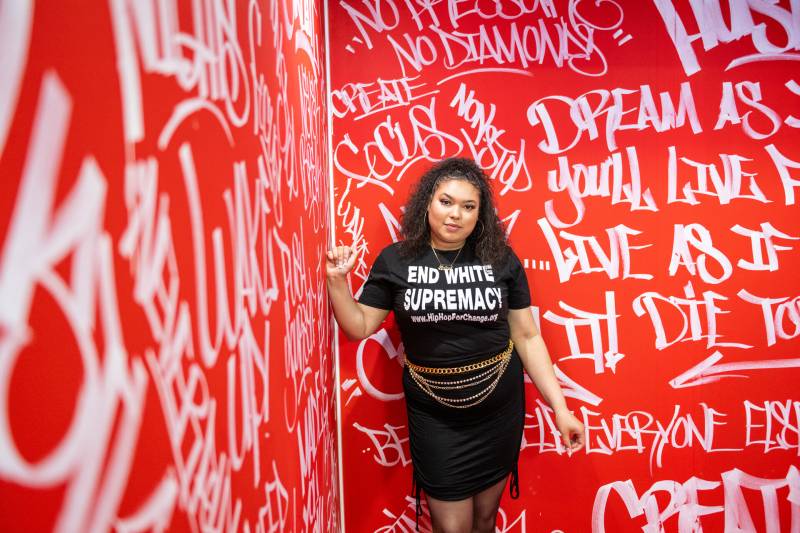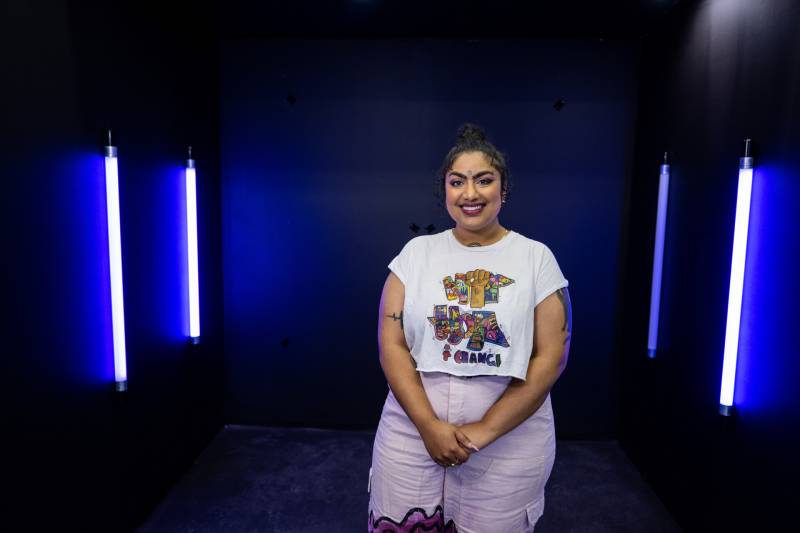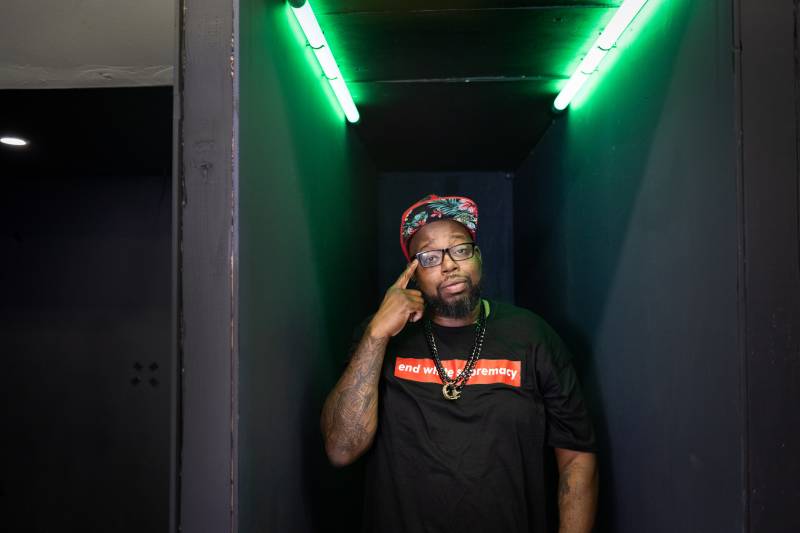Editor’s note: This story is part of That’s My Word, KQED’s year-long exploration of Bay Area hip-hop history.
There’s a new creative hub blossoming between auto shops and construction businesses in San Francisco’s Bayview-Hunters Point. On a recent afternoon, Hip Hop For Change’s education director Marlon Richardson beams with excitement as he walks us through the 1,200-square-foot studio, which will soon come alive with possibilities: a recording space for music and podcasts; a lighting set-up for photography and video shoots; a screen-printing press for artist merch.
On June 26, Hip Hop For Change’s new San Francisco studio will be ready to welcome the thousands of children and young people the organization serves every year, plus local artists from its staff and the surrounding community. A second studio is coming soon to the organization’s North Oakland headquarters. And other developments are on the horizon, including a 24/7 online radio station and Pipeline 2 Positivity, a paid internship program for system-impacted youth to get training in artistic, professional and restorative justice skills.
“We’re putting them in a system that’s going to change the individual for the better, that’s going to prepare them for a world that has historically kept them out of the equation,” says Richardson, an MC and producer who performs as UnLearn The World. “And we’re saying that you can do so by being your most authentic self, finding your voice and letting your voice be heard as loud as possible across all these different creative spectrums.”
These new, ambitious projects come at an exciting time for Hip Hop For Change, but also one of seismic shifts for the organization. The most prominent hip-hop education nonprofit in the Bay Area has recently received an influx of funding from partners such as Meta and the San Francisco 49ers, which has allowed it to expand its youth programming. And the organization has ambitions to take its hip-hop curriculum — which teaches history, culture, beatmaking and other music skills at schools throughout California — nationwide.
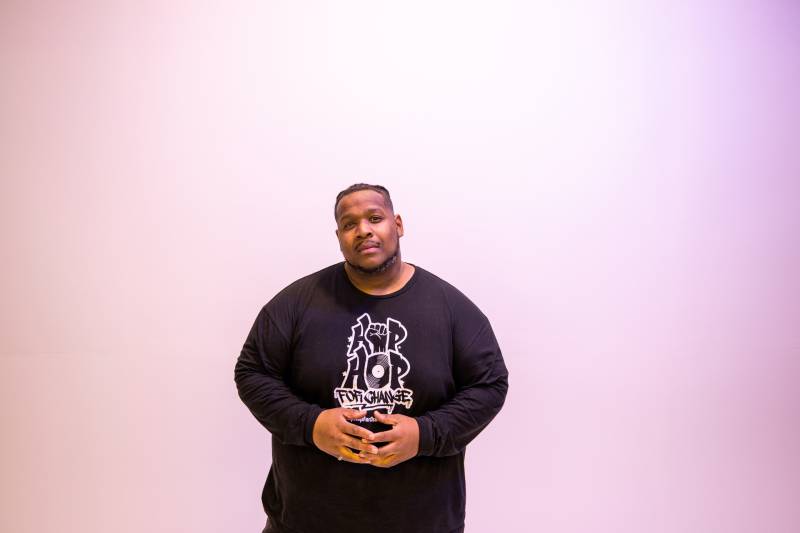
This period of growth has not been without turbulence: In March, the nonprofit announced on its Instagram that founder Khafre James was removed as executive director in January, and that he subsequently resigned. James, who oversaw the growth of the organization from a grassroots initiative, had been the face of the organization for 10 years, and the announcement stirred up controversy and speculation.
